news
Breaking : Tinubu orders CBN to suspend Controversial cybersecurity levy and orders review
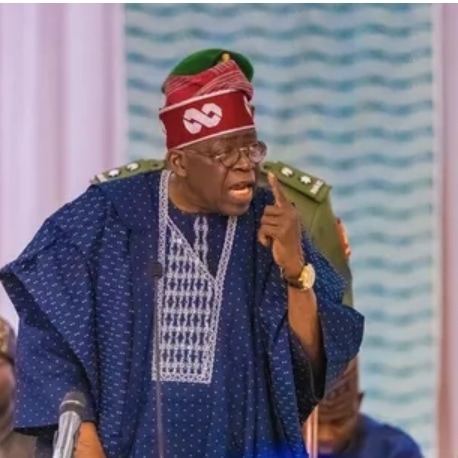
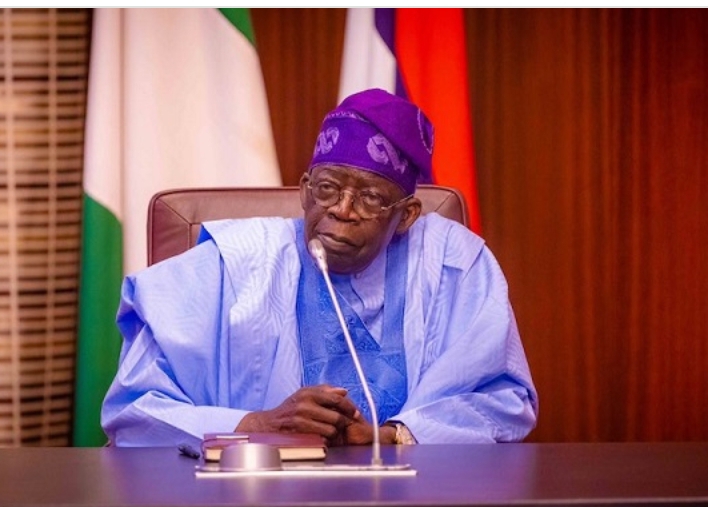 President Bola Tinubu has asked the Central Bank of Nigeria to suspend the implementation of the controversial cybersecurity levy policy and ordered a review.
President Bola Tinubu has asked the Central Bank of Nigeria to suspend the implementation of the controversial cybersecurity levy policy and ordered a review.
This followed the decision of the House of Representatives, which, last Thursday, asked the CBN to withdraw its circular directing all banks to commence charging a 0.5 per cent cybersecurity levy on all electronic transactions in the country.
The CBN on May 6, 2024, issued a circular mandating all banks, mobile money operators, and payment service providers to implement a new cybersecurity levy, following the provisions laid out in the Cybercrime (Prohibition, Prevention, etc) (Amendment) Act 2024.
According to the Act, a levy amounting to 0.5 per cent of the value of all electronic transactions will be collected and remitted to the National Cybersecurity Fund, overseen by the Office of the National Security Adviser.
Financial institutions are required to apply the levy at the point of electronic transfer origination.
The deducted amount is to be explicitly noted in customer accounts under the descriptor “Cybersecurity Levy” and remitted by the financial institution. All financial institutions are required to start implementing the levy within two weeks from the issuance of the circular.
By implication, the deduction of the levy by financial institutions should commence on May 20, 2024.
However, financial institutions are to make their remittances in bulk to the NCF account domiciled at the CBN by the fifth business day of every subsequent month.
The circular also stipulates a timeframe for financial institutions to reconfigure their systems to ensure complete and timely submission of remittance files to the Nigeria Interbank Settlement Systems Plc as follows: “Commercial, Merchant, Non-Interest, and Payment Service Banks – Within four weeks of the issuance of the Circular.
“All other Financial Institutions (Microfinance Banks, Primary Mortgage Banks, Development Financial Institutions) – Within eight weeks of the issuance of the Circular,” the circular noted.
The CBN has emphasised strict adherence to this mandate, warning that any financial institution that fails to comply with the provisions will face severe penalties. As outlined in the Act, non-compliant entities are subject to a minimum fine of two per cent of their annual turnover upon conviction.
The circular provides a list of transactions currently deemed eligible for exemption, to avoid multiple applications of the levy.
These are loan disbursements and repayments, salary payments, intra-account transfers within the same bank or between different banks for the same customer, and intra-bank transfers between customers of the same bank.
Exemptions include other financial institutions’ transfers to their correspondent banks, interbank placements, banks’ transfers to CBN and vice versa, inter-branch transfers within a bank, cheque clearing and settlements, letters of credit, and banks’ recapitalisation-related funding.
Others are bulk funds movement from collection accounts, savings, and deposits including transactions involving long-term investments such as treasury bills, bonds, and commercial papers, and government social welfare programmes transactions.
These may include pension payments, non-profit and charitable transactions including donations to registered non-profit organisations or charities, educational institutions transactions, including tuition payments and other transactions involving schools, universities, or other educational institutions, and transactions involving the bank’s internal accounts, inter-branch accounts, reserve accounts, nostro and vostro accounts, and escrow accounts.
The introduction of the new levy sparked varied reactions among stakeholders as it is expected to raise the cost of conducting business in Nigeria and could potentially hinder the growth of digital transaction adoption.
Members of the House of Representatives on Thursday asked the Central Bank of Nigeria to withdraw the circular directing financial institutions to commence implementation of the 0.5 per cent cybersecurity levy, describing it as “ambiguous”.
The development was in response to a motion on the urgent need to halt and modify the implementation of the cybersecurity levy, moved by Kingsley Chinda.
According to the House, the CBN is to withdraw the initial circular, and “issue a more understandable one”.
Chinda had drawn the attention of the House to multiple interpretations of the CBN directive against the specifications in the Cybersecurity Act.
The House then expressed worry, that the Act would be implemented in error if immediate steps were not taken, to address the concerns around the interpretation of the CBN directive and the Cybersecurity Act.
However, sources with knowledge of Tinubu’s position on the issue told Sunday PUNCH that the President was aware of the economic burden on Nigerians since his hardline economic reforms began last May, adding that he did not want to risk adding to the burden with more levies.
A senior presidency official who preferred not to be named told our correspondent, “The President is sensitive to what Nigerians feel. And he will not want to proceed with implementing a policy that adds to the burden of the people.
“So, he has asked the CBN to hold off on that policy and ordered a review. I would have said he ordered the CBN, but that is not appropriate because the CBN is autonomous. But he has asked the CBN to hold off on it and review things again.”
Another presidency official who preferred to remain anonymous as he was not authorised to speak on the issue said these discrepancies prompted the President to order a review.
“If you look at it, the law predates the Tinubu administration. It was enacted in 2015 and signed by Goodluck Jonathan. It is only being implemented now.
“You know he (Tinubu) was not around when that directive was being circulated. And he does not want to present his government as being insensitive. As it is now, the CBN has held off the instruction to banks to start charging people. So, the President is sensitive. His goal is not to just tax Nigerians like that. That is not his intention. So, he has ordered a review of that law.”
Meanwhile, the Vice President, Kashim Shettima, on Saturday, said the tax reforms undertaken by the Bola Tinubu administration were not aimed to frustrate Nigerians but to sustain the country’s investment friendliness.
The VP, represented by his Special Adviser on General Duties Dr Aliyu Umar, spoke at the close-out retreat of the Presidential Fiscal Policy and Tax Reforms Committee held at the Transcorp Hilton, Abuja. Shettima’s Spokesperson, Mr Stanley Nkwocha, revealed this in a statement titled, ‘Our tax reforms initiated for overall benefits of Nigerians – VP Shettima’.
He argued that contrary to speculations in some quarters, “we are not here to frustrate any sector of our economy but to create an administrative system that ensures the benefits of a thriving tax system for all our citizens”.
Reacting to the decision of the President, the Peoples Democratic Party’s National Publicity Secretary, Debo Ologunagba, welcomed the suspension of the cybersecurity levy policy implementation, noting that the policy should not have been introduced at all.
He said, “It was an anti-people decision from the beginning. It was an insensitive decision from the beginning. It was an ambush on the people who had already been frustrated by the multiple layers of taxes from the beginning. So, it was a very cruel introduction because you do not need to tax us to have cybersecurity.
“You do not need to tax the villagers or the people in the rural areas for cybersecurity. People who do not even have light. They don’t even have access to an internet connection. Well, if that is a show that the president is listening, then that is good. Then, he must now continue to listen more and begin to look at where the problem started and that is the issue of removal of subsidy without any cushioning of its effect. What will happen is that the president should go back further so that Nigerians can breathe by ensuring a policy that will reduce the hardship of the sudden removal of the subsidy.”
Also, reacting to the development, the Chief Executive Officer, Centre for Promotion of Private Enterprises, Dr Muda Yusuf, said the President’s decision shows he is a democrat, adding that the CBN should ensure that the reviewing process of the policy is very inclusive.
“The President’s decision is in line with the clamour by the people. There had been a lot of outcry about it and the fact that the president has responded shows that he is a democrat. It shows he is a listening leader. So we must commend him for listening to the voices of the people. It is a welcome development.
“The government should now look at the policy. I am sure it is not going to be only the CBN. Even the legislators should also look at it because they passed the law. But the key thing is that the policy needs to be reviewed. And the apex bank should take the review beyond the government level. It must consult the stakeholders and the organised private sectors. That is what will make the review very inclusive.”
The Director of Centre for Anti-corruption and Open Leadership, Debo Adeniran, said while President Tinubu should be commended for the decision, the Federal Government should consider a total cancellation of the policy instead of a temporary suspension.
He said, “This is the right step in the right direction. It further accentuates the fact that President Tinubu listens to the voice of the people. And maybe it is because he used to be an activist. He knows that the voice of the people is the voice of God.
“But then, the suspension of the policy is not enough. It should result in the total cancellation of the policy. All the taxes, rates, and levies that are being imposed on the people should be streamlined so that if we want to pay personal income taxes, we should know that that is what we are paying. It is not that the government will take off personal income taxes and we should now pay for every service that we should enjoy from the government. And the increase in micro-economic products like petroleum and others should be made cheaper and affordable for all Nigerians,” he stated.
Also, a professor of Economics at Olabisi Onabanjo University, Sheriffdeen Tella, cautioned the Federal Government against creating additional hardship for Nigerians. He said while the policy was not a bad idea, the timing was inappropriate.
He said, “There is nothing wrong with the levy but it was at the wrong time. The government should stop creating problems for itself. People are battling inflation and all sorts of inefficiency and you are imposing a tax on them. The president has done well by reversing it. It is not the right time to impose additional burdens on Nigerians. I commend the President for having the courage to do the right thing.”
Meanwhile, the Socio-Economic Rights and Accountability Project threatened to file a lawsuit if the Federal Government did not withdraw the levy within 48 hours. The group stated that the levy “patently violates the provisions of the Nigerian constitution 1999 (as amended) and the country’s international human rights obligations and commitments”.
However, the Nigeria Labour Congress stated that the cybersecurity levy and several other levies and taxes already imposed on the citizens had deepened the financial burden on the populace currently grappling with economic challenges.
A statement signed by the NLC President, Joe Ajaero, demanded the reversal of the directive by CBN, adding that the Federal Government should prioritise policies that alleviate the financial burdens of Nigerians. NLC said the move, which was ostensibly aimed at bolstering cybersecurity measures, could exacerbate the financial strain already faced by the populace.
news
Airlin Advocacy Commissions Jos Office, Targets 7m Members By Next Elections,Says Mohammed Gamawa
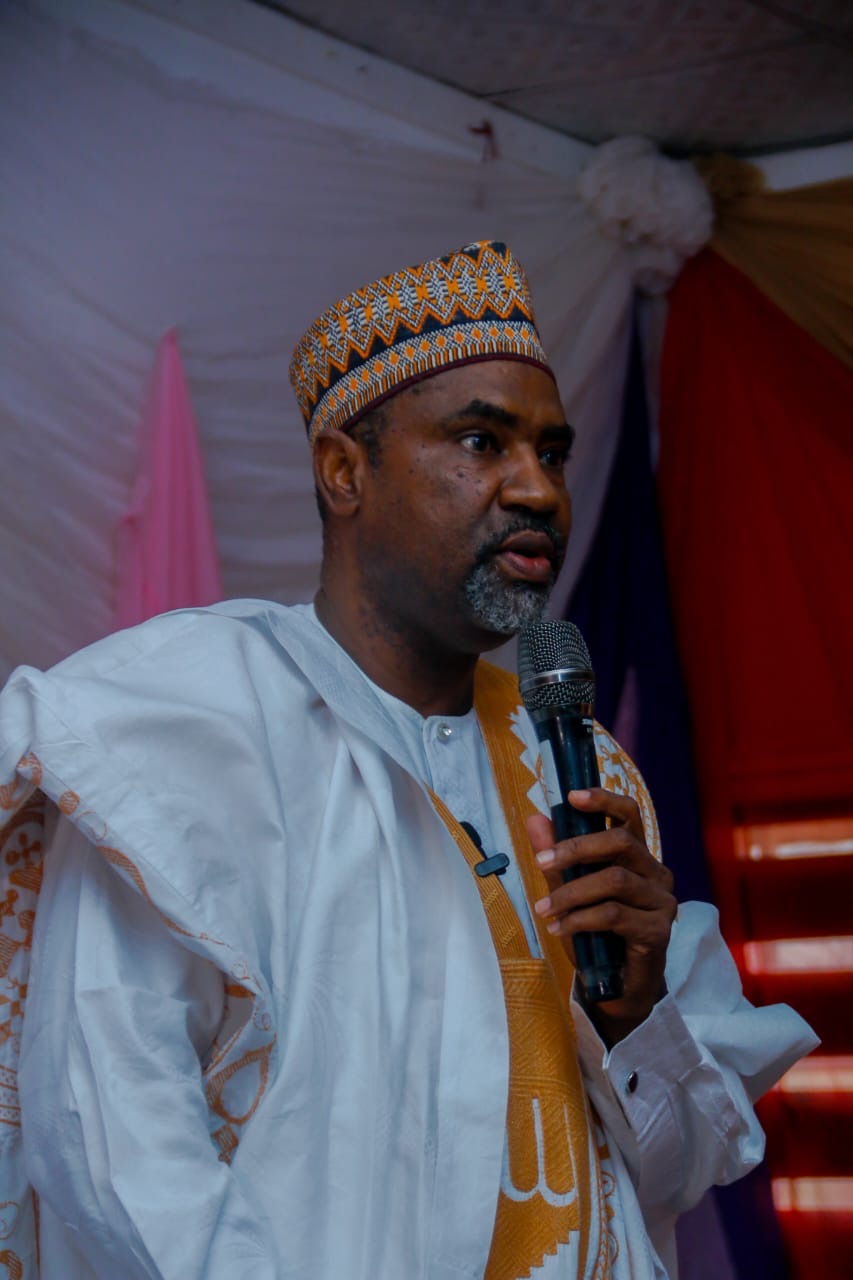
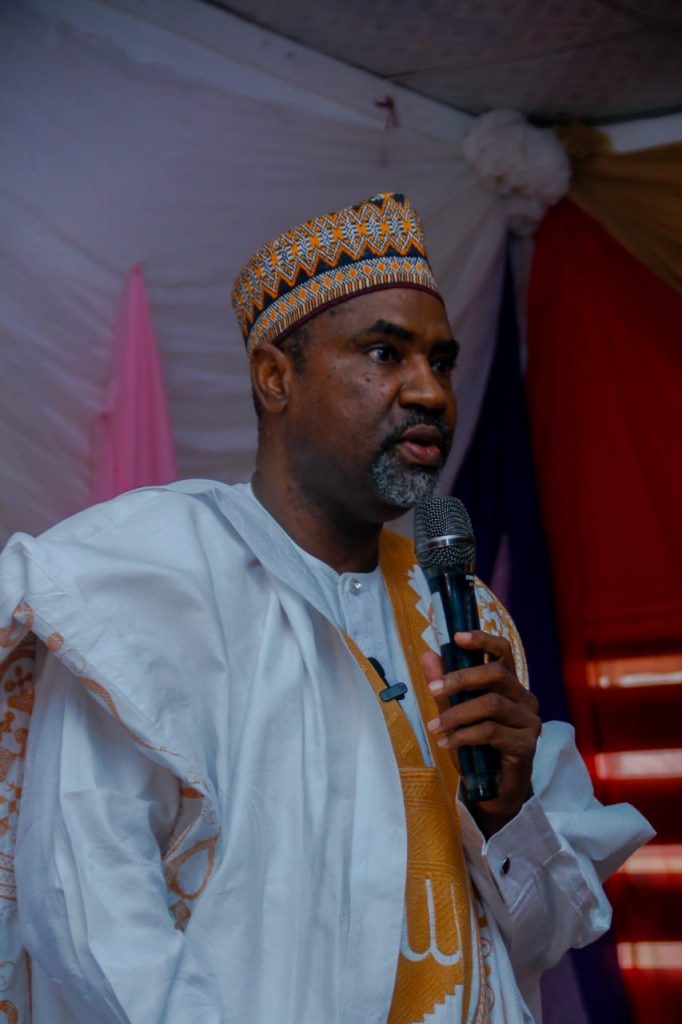 During the inauguration ceremony, the National Chairman of Airlin, Mohammed Gamawa, delivered a keynote address, emphasizing the organization’s commitment to educating Nigerians on their civic rights and responsibilities.
During the inauguration ceremony, the National Chairman of Airlin, Mohammed Gamawa, delivered a keynote address, emphasizing the organization’s commitment to educating Nigerians on their civic rights and responsibilities.
According to Gamawa, Airlin aims to bridge the gap between citizens and the principles of the rule of law by fostering a society where people understand not only their rights but also what is expected of them by the country.
“Our goal is to foster interaction among Nigerians, promote respect for the rule of law, and ensure citizens know their rights and civic responsibilities — such as voting to elect future leaders not based on materialism but based on integrity and competence,” Gamawa stated.
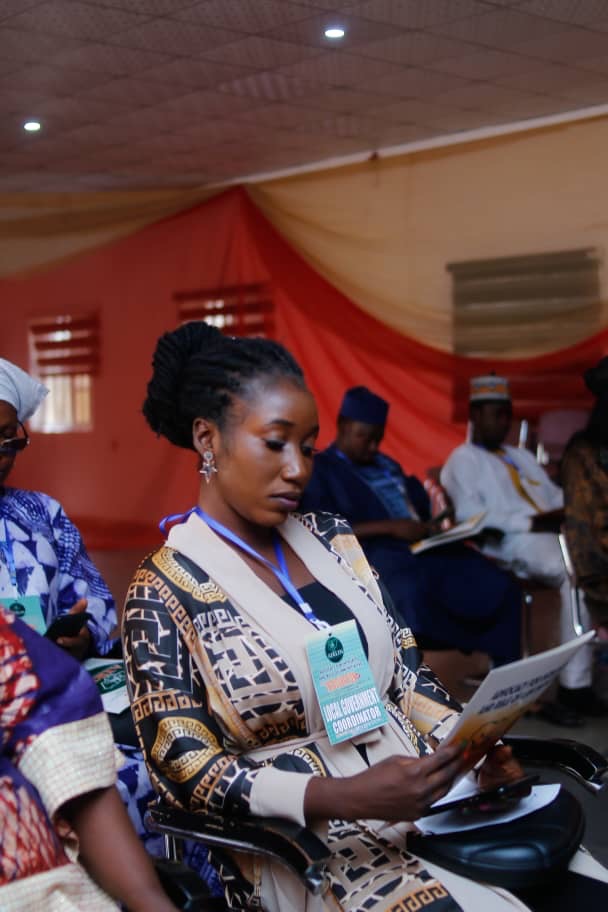
He added that understanding and exercising one’s franchise, especially during elections, must go hand in hand with being law-abiding and fully aware of civil responsibilities.
As part of its mission, Airlin is currently targeting 19 states in Northern Nigeria, with Jos becoming the 15th state to be commissioned.
The ceremony also featured the appointment of state and local government coordinators who will help drive the organization’s grassroots advocacy efforts.
With a current membership base of 2.1 million Nigerians aged 18 and above, Airlin projects a significant growth trajectory, aiming to reach 7 million members before the next general elections.
news
Nothing new in FBI report on Tinubu, says Onanuga
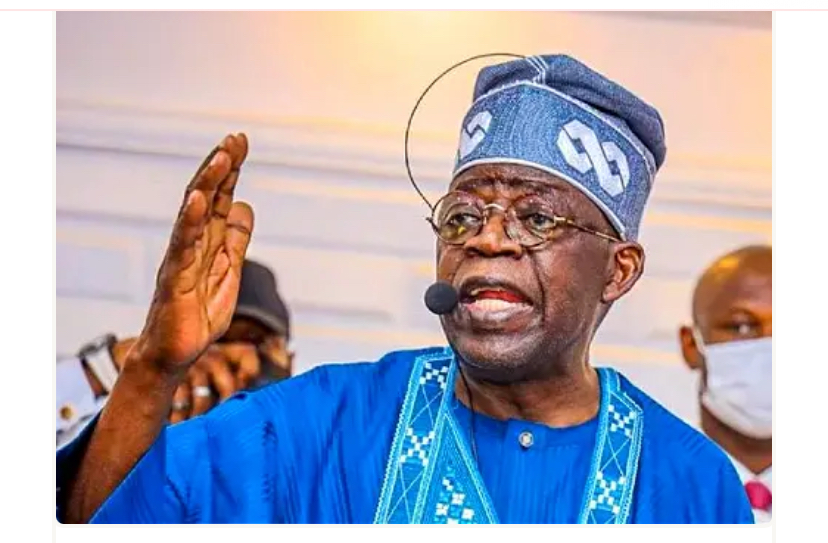
 Senior Special Adviser to the President on Information and Strategy Bayo Onanuga has dismissed a report of a United State (U.S.) court ordering two law enforcement agencies to release information on President Bola Ahmed Tinubu during a “purported federal investigation in the 1990s.”
Senior Special Adviser to the President on Information and Strategy Bayo Onanuga has dismissed a report of a United State (U.S.) court ordering two law enforcement agencies to release information on President Bola Ahmed Tinubu during a “purported federal investigation in the 1990s.”
In a tweet on his verified X handle, Onanuga told those agitated by the directive that there would be nothing revealing in the anticipated report.
In an April 9 ruling, District Court for the District of Columbia Judge, Beryl Howell ordered the Department of State, Federal Bureau of Investigation (FBI), Internal Revenue Service (IRS), Drug Enforcement Administration (DEA) and the Central Intelligence Agency (CIA) to release the information to Mr. Allan Greenspan.
The information being sought by Greenspan was classified as “confidential information” generated during a “purported federal investigation in the 1990s.”
Judge Howell said that protecting the information from public disclosure “is neither logical nor plausible.”
Commenting on the ruling, Onanuga said: “There is nothing new to be revealed. The report by Agent Moss of the FBI and the DEA report have been in the public space for more than 30 years. The reports did not indict the Nigerian leader”, Onanuga said yesterday.
He said that counsel to the President have been “examining the ruling”.
news
Oyetola Leads Nigeria’s Strategic Bid for IMO Council Seat, Aiming for Global Maritime Influence
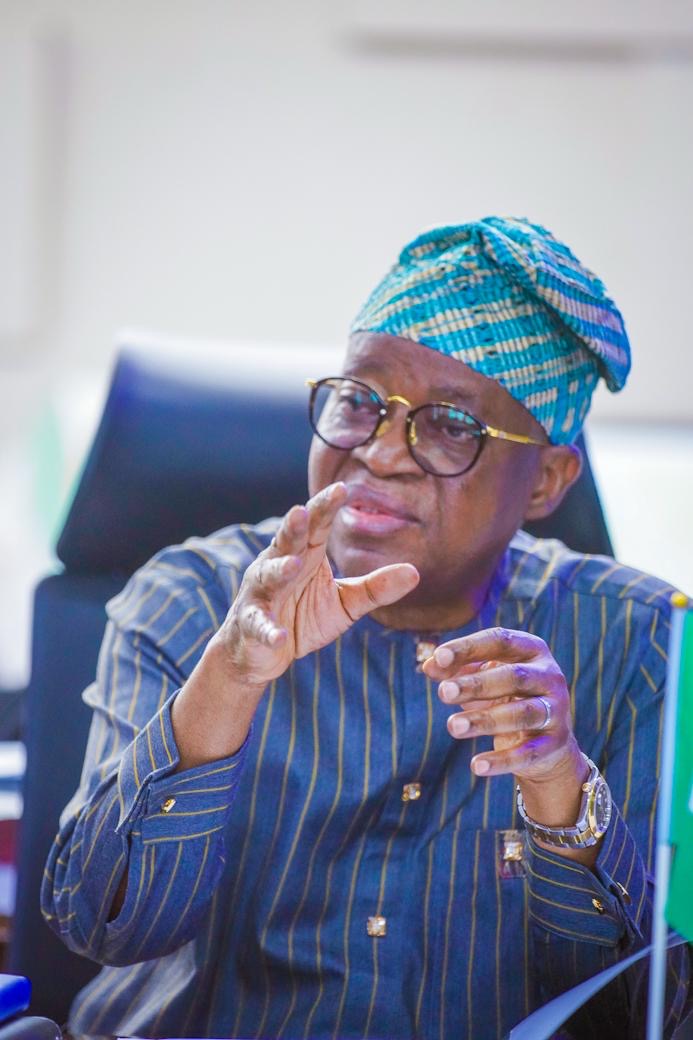
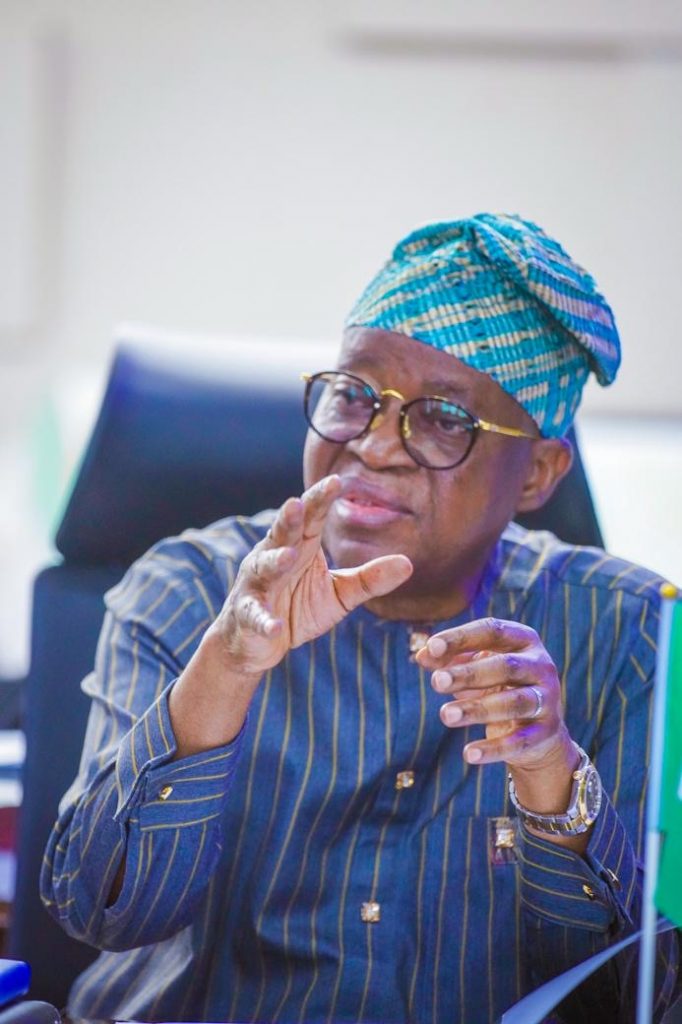 Nigeria is setting sail towards a greater role in international maritime affairs as it bids for election into Category C of the International Maritime Organization (IMO) Council.
Nigeria is setting sail towards a greater role in international maritime affairs as it bids for election into Category C of the International Maritime Organization (IMO) Council.
Leading this ambitious push is the Honourable Minister of Marine and Blue Economy, His Excellency Adegboyega Oyetola (CON), whose vision is to position Nigeria as a dominant force in global shipping and maritime governance.
The IMO, a specialized United Nations agency responsible for regulating international shipping, holds its Council elections later this year. Category C is specifically reserved for nations with significant interests in maritime transport and trade, providing them with a platform to contribute to shaping global maritime policies. For Nigeria, securing a seat is not just a diplomatic pursuit it represents a strategic leap forward for economic growth, regional leadership, and maritime security.
At the heart of this campaign is Nigeria’s intention to amplify its voice in international maritime decisions. Membership in the IMO Council would afford the country a pivotal role in the formulation of regulations and policies that affect shipping, safety, environmental protection, and trade. This influence would allow Nigeria to safeguard both its national interests and those of the broader West African sub region.
Economic prospects tied to the blue economy form another cornerstone of Nigeria’s bid. With a coastline stretching over 850 kilometers and a maritime domain rich in resources, Nigeria is aggressively advancing its blue economy agenda. A seat at the IMO table is expected to draw foreign investment, stimulate port infrastructure development, and enhance trade efficiency all in line with President Bola Tinubu’s broader strategy for economic diversification.
Maritime security is also high on the agenda. Nigeria, which has made considerable strides in curbing piracy in the Gulf of Guinea, sees IMO Council membership as a means of deepening international collaboration, adopting global best practices, and enhancing safety standards along its waterways.
The campaign also underscores Nigeria’s commitment to human capital development. By aligning more closely with the IMO, Nigeria aims to provide its maritime professionals especially young people with increased access to global training programs and capacity building initiatives. This would help nurture a new generation of skilled seafarers, engineers, and administrators capable of competing on the world stage.
Nigeria’s regional leadership is also in focus. As Africa’s largest economy, the country seeks to use its potential IMO seat to drive greater cooperation among African maritime nations, promote sustainable development, and project a unified continental voice in international maritime diplomacy.
In addition, Nigeria anticipates increased access to technical support and maritime innovation through IMO engagement. This includes advancements in shipping technology, logistics modernization, and enhanced port management critical components for a thriving maritime industry.
Oyetola’s Vision and Commitment
Oyetola, since his appointment, has consistently emphasized the need for Nigeria to embrace its maritime identity and assert its global relevance. His advocacy for Category C membership has been described by stakeholders as a bold and necessary step in unlocking the full potential of the sector.
“Nigeria must take its rightful place on the global maritime stage. Our waters, our people, and our potential deserve nothing less,” Oyetola affirmed during a recent stakeholders’ engagement on the bid.
As the IMO elections approach, there is growing optimism that Nigeria’s strategic location, extensive maritime assets, and clear policy direction will earn it a seat at one of the most influential tables in global shipping. The journey to Category C may be competitive, but with strong leadership at the helm, Nigeria is navigating with purpose and promise.
Jamiu Omookose
-

 news4 years ago
news4 years agoUPDATE: #ENDSARS: CCTV footage of Lekki shootings intact – Says Sanwo – Olu
-

 news1 year ago
news1 year agoEnvironmental Pollutions : OGONI COMMUNITY CRIES OUT, THREATENS TO SHUT DOWN FIRSTBANK,SHELL OIL COMPANY OPERATIONS FOR NOT PAYING COURT AWARD
-
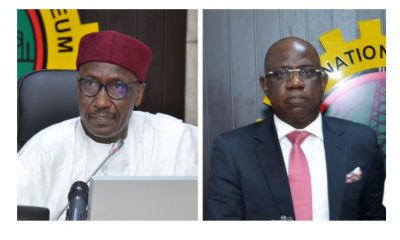
 news2 weeks ago
news2 weeks agoBreaking : TInubu appoints Bashir Ojulari as new CEO group of NNPC and GMD mele kyari get sacked, Says Onanuga
-
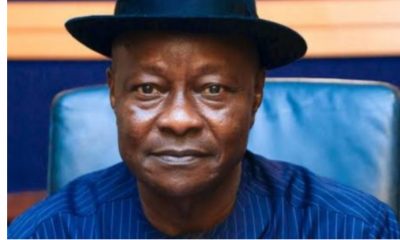
 news3 weeks ago
news3 weeks agoUpdate : Fubara ordered bombing of Rivers Assembly, I am not under duress I resigned, Says ex-Rivers HoS Nwaeke
-
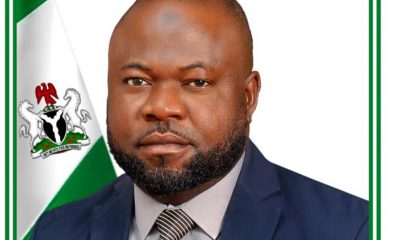
 interview2 weeks ago
interview2 weeks agoNIGERIA MECHANIZED AGRO EXTENSION SERVICE PROJECT, A STRATEGIC MOVE TO ALLEVIATE POVERTY – DR. AMINU ABDULKADIR
-

 news3 weeks ago
news3 weeks agoTinubu commended Nandap for her leadership, extends Comptroller-General tenure till 2026, says Onanuga
-

 news4 days ago
news4 days agoNothing new in FBI report on Tinubu, says Onanuga
-

 news1 week ago
news1 week agoUpdate : FG confirms continuation of crude, refined product sales in Naira initiative, Says Wale Edu


